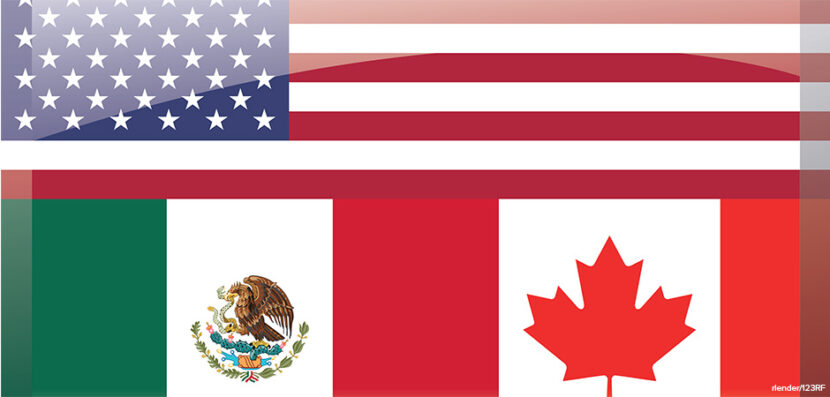New Trade Agreement Receives Bipartisan Support
It might seem like Democrats and Republicans can’t agree on anything these days. But that’s not exactly true. In fact, on the same day that House Democrats formally announced articles of impeachment against Trump, they also revealed a bipartisan updated trade agreement between the U.S., Canada, and Mexico. This week at Election Central, we take a closer look at the popular new agreement, and what it will mean for trade.
No More NAFTA?
Have you ever heard of the North American Free Trade Agreement, more popularly known as NAFTA? It was the world’s largest trade agreement and was signed by Canada, Mexico, and the United States in 1994. The goal was to create a trade bloc, eliminating barriers to trade and investment between the three nations. It eliminated a significant amount of tariffs and lowered prices on many critical imports. As a result, it increased trade and economic growth for all three countries. But NAFTA also had several significant drawbacks: most notably that it caused many U.S. manufacturing jobs to be sent to Mexico.
The president, concerned about the trade deficit between the United States and Mexico (meaning that the U.S. imports more from Mexico than it exports there) immediately made the elimination of NAFTA one of his priorities.
A New Deal
The new trade deal–called the United States-Mexico-Canada Agreement (USMCA)–is a renegotiated version of NAFTA. It differs from NAFTA in several major ways, such as providing incentives for auto manufacturing jobs to shift back to the U.S. from Mexico.
Surprisingly, both Democrats and Republicans concur that the new agreement is a big improvement over NAFTA. Democrats like that the USMCA contains environmental provisions, as well as labor protections such as creating a process for inspecting factories that may not meet standards. It also addresses the issue of digital trade. The deal was endorsed last weekend by the AFL-CIO labor union, which was critical to winning the support of Democrats.
The Debate Over Drugs
Not everyone agreed on the success of the new deal, however. One major concession that the Trump administration had to make was backing down on language that would have allowed pharmaceutical companies to hang onto patents on cutting-edge drugs for ten years. According to Democrats, that language would have prevented generic drug companies from being able to create more affordable alternatives. But Republicans argued that removing the language will weaken intellectual property protections, and will allow foreign governments to steal American medical research. As a result, the Pharmaceutical Research and Manufacturers of America (PhRMA) refused to support the agreement.
What Happens Next?
The House is expected to vote on the new agreement as early as next week. But in order for it to take effect, it must be ratified by the legislatures of all three countries. That means it could be well into 2020 before USMCA is official. In the meantime, however, it marks the first major trade agreement of the Trump administration and proves that at least in some ways, Democrats and Republicans are still willing to work together.



